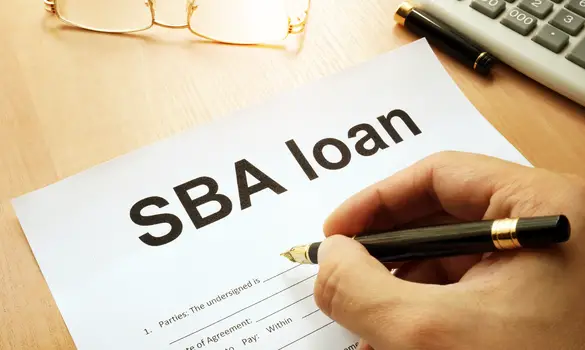
SBA loans are frequently sought after by new business owners. These startup loans are government-backed and offer some of the lowest rates in the market. However, many business owners are still weary of intensive application processes and low-approval rates. This is especially true for business owners with bad credit. While the SBA loan program has extremely broad eligibility requirements, you can still be denied by financing based on a number of factors. If you are wondering if you are eligible for SBA startup loans with bad credit, continue reading this post.
Down Payment
While SBA loans are backed by the Small Business Administration, they are not backed in the full amount. Because of this, most SBA approved lenders still require a down payment. Often the down payment required ranges from 10% to 20%. However, if you are a bad-credit applicant this rate can be much higher, sometimes as high as 30%. In order to qualify for loans, you must be able to bring some capital investment. With poor credit, it may be difficult to obtain these funds without sufficient financing. Consider the down payment required by SBA lenders if you are applying for a loan with bad credit.
Collateral
Many lenders require you to put forward collateral to be approved for an SBA startup loan. The Small Business Administration does not require lenders to take any value in collateral. There are some cases where collateral is required. For example, all SBA 7(a) loans over $350,000 do require collateral. However, this is often left to the discretion of lenders. Depending on the size and type of your loan, lenders may ask you to offer collateral in the form of assets. Bad credit applicants will likely have to put forward collateral no matter the size or loan type. If you default on payments, your collateral is then liquidated and applied to your loan balance. Consider the collateral required if you are looking to obtain an SBA loan with bad credit.
Strict Approval Process
Applying for an SBA loan can be a long strenuous process. Although loans are backed by the SBA, they are still processed by approved lenders. Because of this, you are required to complete the lenders application process. In this process, lenders evaluate your credit score and history very closely. Although there are no broad requirements, typically you must have a credit score of at least 640. Following the lenders process, you will likely have your personal credit score evaluated as well as that of your business. Since lenders have their own discretion in the approval process, you can still be approved for an SBA loan. However, these will often be accompanied by higher down payments, interest rates, and collateral amounts. Consider the strict approval process SBA loan applicants must undergo to be approved.
Long Wait Periods
On top of long application processes, SBA loans also include extremely long wait periods to obtain funds. For bad credit applicants who need money right away, this can be a significant pitfall. SBA loans have to be evaluated by lenders and the Small Business Administration before funds can be distributed. While there is no set time frame, SBA 7(a) loans often take 45 days to inform you whether you are approved. Waiting this long could potentially harm you credit even more and set your plans back to start your business. Consider how long wait periods may influence your ability to accept SBA loans with bad credit.
Discretion From Lenders
Lenders are allowed to use a lot of their own personal discretion when deciding loan terms. Even though loans are backed by the SBA, it is lenders that ultimately decide whether you are approved, what your rates are, if you require collateral, and what your down payment will be. There are maximum interest rates and fees. However, for bad credit applicants lenders often charge these fees in full. Some lenders may ask for smaller down payments on similar sized loans, and others may require different values of collateral. Because of this, especially if you are in a bad credit position, it is crucial to examine rates from multiple lenders. Applicants with bad credit could face denial simply on the basis of lender discretion.
SBA startup loans are becoming increasingly popular amongst new business owners. SBA offer flexible loan amounts, low interest rates, and broad requirements. However, especially for bad credit applicants, borrowers are not always sure about their eligibility. There can be several disadvantages to SBA loans for poor credit applicants. Bad credit borrowers must consider the size of the required down payment they will be offered. They may be required to put forward asset-based collateral to back loans. Applicants must follow a stringent application process and long wait periods. Furthermore, they face independent discretion from lenders that can impact decisions. If you are wondering if you are eligible for SBA startup loans with bad credit, consider the points mentioned above.
 Business First Family Business, Accounting, Finance, Investing, Marketing And Management
Business First Family Business, Accounting, Finance, Investing, Marketing And Management